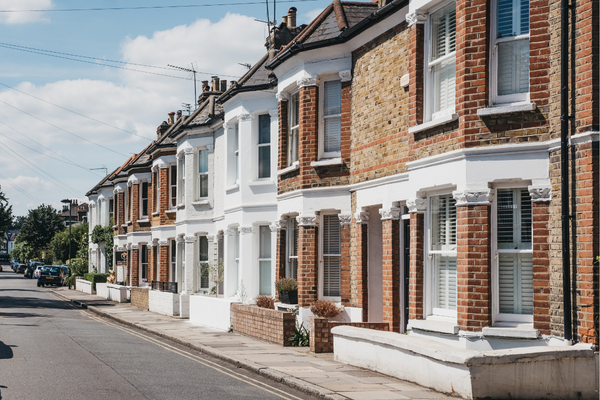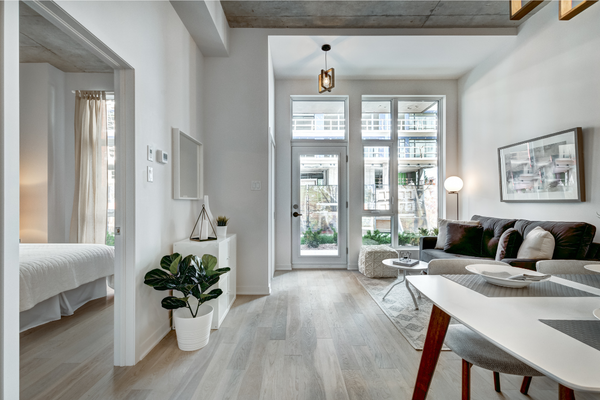Q4 property market insights

Exorbitant energy bills continue to fuel the ongoing cost-of-living crisis, and continued rate hikes put downward pressure on the property market as many fall short of securing loans. But is it all doom and gloom, and what does the fourth quarter have in store for the UK residential property market?
For all the reasons to expect the bubble to well and truly burst, there are a variety of factors at play, suggesting that a far more moderate cool-off is to be expected.
The recent mini budget announcements include a welcome return to some Stamp Duty relief, with none now applicable to property purchases under £250,000 (£425,000 for first-time buyers).
A freeze on energy bills is also anticipated to reduce inflation. Markets are certainly dampening somewhat, but a gradual calming to the frenzied activity of the past number of years is the most likely outlook as we head towards the end of 2022.

Property growth slowing in response to rate hikes
As the cost-of-living crisis endures, the Bank of England’s seven rate rises since December 2021 are certainly having the desired effect on reducing inflation when it comes to the property market.
While house prices decreased by a marginal 0.1% for the month of September (compared to a 0.3% rise in August), the annual rate of growth dipped further from 11.4% to 9.9%. This is the first time that the annual house price inflation figure has entered single figures since January 2022. According to Halifax’s latest report, this brings the average cost of a UK property back down to £293,835 from the record high of £293,992 seen in August.
The current Bank rate sits at 2.25%, and is due for its next revision on November 3rd. Many experts expect another marginal increase, further impacting mortgage costs. While this is understandably unwelcome news to property owners and hopeful buyers, the government’s ongoing war against raging inflation is designed to stabilise the market; historic inventory lows persist, preventing the plummeting of demand and keeping the market buoyant.
Although a strong labour market in combination with low inventory and newly announced stamp duty cuts would typically indicate an upward property value trajectory, there are more factors at play that muddy the waters. The continued cost-of-living crisis in addition to rising borrowing costs makes it most likely that we will see continued downward pressure on market values in the not-too-distant future - especially into 2023.
That said, current Rightmove data shows buyer demand is still up 27% compared to 2019, and average new seller asking prices are up 1% compared to one month ago.
London property market slowest rate of annual growth
The slowest rate of annual growth across the UK continues to be seen in London, with property prices in the capital rising by 8.1% year-on-year.
Nevertheless, increasing equity coupled with returning international investors is buffering the effect of higher mortgage costs, particularly in prime central London (PLC). The percentage of PCL cash buyers was at 52% January - September 2022, while in prime outer London (POL) the figure sat at 30%.
While it is expected that PCL prices and demand will fall next year in response to increasing mortgage rates, there are no significant signs of this as yet. For the time being, the continued slump in supply combined with the rush to lock in last-minute low rates is keeping the market energised, but with further rate hikes seemingly imminent, it won’t last.
Rental prices and demand continue to rise
Rents have surged across most UK regions since the beginning of the year, particularly in London, the North West, Wales and Scotland.
Demand for rental properties is also at an all time high, with Rightmove data showing that unique rental enquiries across the UK stood at 567,000 in September 2022, a huge 43.6% increase from five years ago.
With such an increased demand for renting, this is pushing up rental prices, making for attractive yields for many investors.

1 & 2-bedroom apartments back in demand
The cost-of-living crisis appears to be pushing renters into smaller flats. The demand for one-bedroom flats rose to 31% (as a percentage of applications of all property types) in August 2022, while applications for two bedrooms also increased to 35% for the same period. Conversely, demand for two and three-bedroom houses dropped to 11% and 12% respectively.
In addition to cheaper rents, tenants are attracted to one and two-bedroom apartments given their cheaper/more efficient running costs when compared to a house. As we approach the winter months, renters are making moves to reduce their outgoings - it costs approximately 40% less to keep a purpose-built apartment compared to a three-bedroom terraced property, while flat conversions are also estimated to be 25% cheaper to heat.
Homeowners/landlords - It pays to go green
A new study from Knight Frank comparing the Energy Performance Certificates (EPC) ratings of 30,000 properties in relation to their home’s value. The results demonstrated that improving the energy efficiency of a property can improve its value above and beyond any local average growth; the homes which had an improved rating of C from D were seen to achieve an extra 3% in value growth in addition to any average local price growth. This additional growth was found to equate to the equivalent of around £9,000 (based upon average local resale values).
Of course, improvements in energy ratings bear an upfront cost that must be factored into any overall gain. According to the report, the improvements necessary to bring a D rated property up to band C cost an average of £5,500, although this will vary depending on factors such as the age and size of the dwelling.
In addition to the potential for increasing a property’s value, carrying out eco-friendly improvements can make it more desirable to both buyers and tenants. Especially given the current cost-of-living crisis and soaring energy bills, energy-efficient homes are in increasingly high demand.
Thinking of buying, renting or selling a property?
If you are considering buying, renting or selling a property, get in touch with your local branch.
Looking for advice?
If you're looking to let or sell your property, we can help. Get in touch with your local branch or book in for a property valuation.

Contact Us
Got a question, general enquiry or something else?
You may also like



